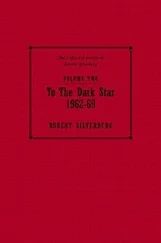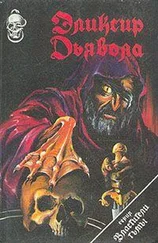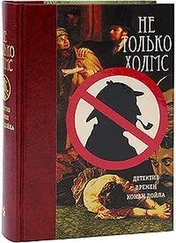"I don't think," repeated Rue, "that she would care for me at all."
"Yes, she would. She's young and warm–hearted and human. Besides, she is interested in art—knows a lot about it—even paints very well herself."
"She must be wonderful."
"No—she's just a regular woman. It was because she was interested in art that she came to the League, and I was introduced to her. That is how I came to know her. She comes sometimes to my studio."
"Yes, but you are already an artist, and an interesting man―"
"Oh, Rue, I'm just beginning. She's kind, that's all—an energetic, intelligent woman, full of interest in life. I know she'll give you some splendid advice—tell you how to get settled in Paris—Lord! You don't even know French, do you?"
"No."
"Not a word?"
"No…. I don't know anything, Mr. Neeland."
He tried to laugh reassuringly:
"I thought it was to be Jim, not Mister," he reminded her.
But she only looked at him out of troubled eyes.
In the glare of the pier's headlights they descended. Passengers were entering the vast, damp enclosure; porters, pier officers, ship's officers, sailors, passed to and fro as they moved toward the gangway where, in the electric glare of lamps, the clifflike side of the gigantic liner loomed up.
At sight of the monster ship Rue's heart leaped, quailed, leaped again. As she set one slender foot on the gangway such an indescribable sensation seized her that she caught at Neeland's arm and held to it, almost faint with the violence of her emotion.
A steward took the suitcase, preceded them down abysmal and gorgeous stairways, through salons, deep into the dimly magnificent bowels of the ocean giant, then through an endless white corridor twinkling with lights, to a stateroom, where a stewardess ushered them in.
There was nobody there; nobody had been there.
"He dare not come," whispered Neeland in Ruhannah's ear.
The girl stood in the centre of the stateroom looking silently about her.
"Have you any English and French money?" he asked.
"No."
"Give me—well, say two hundred dollars, and I'll have the purser change it."
She went to her suitcase, where it stood on the lounge; he unstrapped it for her; she found the big packet of treasury notes and handed them to him.
"Good heavens!" he muttered. "This won't do. I'm going to have the purser lock them in the safe and give me a receipt. Then when you meet the Princess Mistchenka, tell her what I've done and ask her advice. Will you, Rue?"
"Yes, thank you."
"You'll wait here for me, won't you?"
"Yes."
So he noted the door number and went away hastily in search of the purser, to do what he could in the matter of foreign money for the girl. And on the upper companionway he met the Princess Mistchenka descending, preceded by porters with her luggage.
"James!" she exclaimed. "Have you come aboard to elope with me? Otherwise, what are you doing on the Lusitania at this very ghastly hour in the morning?"
She was smiling into his face and her daintily gloved hand retained his for a moment; then she passed her arm through his.
"Follow the porter," she said, "and tell me what brings you here, my gay young friend. You see I am wearing the orchids you sent me. Do you really mean to add yourself to this charming gift?"
He told her the story of Ruhannah Carew as briefly as he could; at her stateroom door they paused while he continued the story, the Princess Mistchenka looking at him very intently while she listened, and never uttering a word.
She was a pretty woman, not tall, rather below middle stature, perhaps, beautifully proportioned and perfectly gowned. Hair and eyes were dark as velvet; her skin was old ivory and rose; and always her lips seemed about to part a little in the faint and provocative smile which lay latent in the depths of her brown eyes.
" Mon Dieu! " she said, "what a history of woe you are telling me, my friend James! What a tale of innocence and of deception and outraged trust is this that you relate to me! Allons! Vite! Let us find this poor, abandoned infant—this unhappy victim of your sex's well–known duplicity!"
"She isn't a victim, you know," he explained.
"I see. Only almost—a—victim. Yes? Where is this child, then?"
"May I bring her to you, Princess?"
"But of course! Bring her. I am not afraid—so far—to look any woman in the face at five o'clock in the morning." And the threatened smile flashed out in her fresh, pretty face.
* * * * *
When he came back with Rue Carew, the Princess Mistchenka was conferring with her maid and with her stewardess. She turned to look at Rue as Neeland came up—continued to scrutinise her intently while he was presenting her.
There ensued a brief silence; the Princess glanced at Neeland, then her dark eyes returned directly to the young girl before her, and she held out her hand, smilingly:
"Miss Carew—I believe I know exactly what your voice is going to be like. I think I have heard, in America, such a voice once or twice. Speak to me and prove me right."
Rue flushed:
"What am I to say?" she asked naïvely.
"I knew I was right," exclaimed the Princess Mistchenka gaily. "Come into my stateroom and let each one of us discover how agreeable is the other. Shall we—my dear child?"
* * * * *
When Neeland returned from a visit to the purser with a pocket full of British and French gold and silver for Ruhannah, he knocked at the stateroom door of the Princess Mistchenka.
That lively personage opened it, came out into the corridor holding the door partly closed behind her.
"She's almost dead with fatigue and grief. I undressed her myself. She's in my bed. She has been crying."
"Poor little thing," said Neeland.
"Yes."
"Here's her money," he said, a little awkwardly.
The Princess opened her wrist bag and he dumped in the shining torrent.
"Shall I—call good–bye to her?" he asked.
"You may go in, James."
They entered together; and he was startled to see how young she seemed there on the pillows—how pitifully immature the childish throat, the tear–flushed face lying in its mass of chestnut hair.
"Good–bye, Rue," he said, still awkward, offering his hand.
Slowly she held out one slim hand from the covers.
"Good voyage, good luck," he said. "I wish you would write a line to me."
"I will."
"Then―" He smiled; released her hand.
"Thank you for—for all you have done," she said. "I shall not forget."
Something choked him slightly; he forced a laugh:
"Come back a famous painter, Rue. Keep your head clear and your heart full of courage. And let me know how you're getting on, won't you?"
"Yes…. Good–bye."
So he went out, and at the door exchanged adieux with the smiling Princess.
"Do you—like her a little?" he whispered.
"I do, my friend. Also—I like you. I am old enough to say it safely, am I not?"
"If you think so," he said, a funny little laugh in his eyes, "you are old enough to let me kiss you good–bye."
But she backed away, still smiling:
"On the brow—the hair—yes; if you promise discretion, James."
"What has tottering age like yours to do with discretion, Princess Naïa?" he retorted impudently. "A kiss on the mouth must of itself be discreet when bestowed on youth by such venerable years as are yours."
But the Princess, the singularly provocative smile still edging her lips, merely looked at him out of dark and slightly humorous eyes, gave him her hand, withdrew it with decision, and entered her stateroom, closing the door rather sharply behind her.
* * * * *
When Neeland got back to the studio he took a couple of hours' sleep, and, being young, perfectly healthy, and perhaps not unaccustomed to the habits of the owl family, felt pretty well when he went out to breakfast.
Читать дальше












